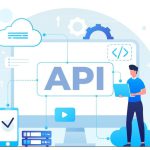In today’s digital landscape, data privacy is paramount. With the increasing amount of personal information being collected, processed, and stored by businesses, regulations such as the General Data Protection Regulation (GDPR) and the California Consumer Privacy Act (CCPA) have emerged to protect consumer rights. These laws not only safeguard user data but also impose obligations on organizations, significantly influencing software development practices.
Understanding GDPR and CCPA
Before delving into their impact on software development, it’s essential to understand what GDPR and CCPA entail.
- GDPR: Enforced in May 2018, the GDPR is a comprehensive data protection regulation in the European Union. It mandates that organizations must obtain explicit consent from users to collect and process their personal data. Key principles include data minimization, privacy by design, and the right to be forgotten.
- CCPA: Implemented in January 2020, the CCPA grants California residents specific rights regarding their personal information. It requires businesses to disclose what personal data is collected, the purpose of its collection, and the right of users to opt out of data selling.
The Impact of GDPR and CCPA on Software Development
The repercussions of these regulations extend deeply into the software development lifecycle. Here are several critical areas where compliance plays a vital role:
1. Design and Architecture
Data privacy laws necessitate that developers integrate privacy considerations from the outset of the software design process. This principle is known as “privacy by design.” Key aspects include:
- Implementing data minimization techniques to collect only the necessary data.
- Using encryption and anonymization to protect personal data both in transit and at rest.
- Creating user-friendly interfaces that allow users to manage their privacy settings easily.
2. User Consent Management
Obtaining explicit user consent is a cornerstone of GDPR and CCPA compliance. Developers must create systems that:
- Provide clear and accessible consent forms.
- Allow users to withdraw consent easily.
- Document consent to demonstrate compliance during audits.
3. Data Processing and Storage
Both laws stipulate strict guidelines on how personal data should be processed and stored. Software developers need to ensure that:
- Data is stored securely using best practices in data security.
- Access controls are in place to limit data exposure to unauthorized users.
- Data retention policies are established to comply with legal limits on data storage.
4. Incident Response and Breach Notification
In the event of a data breach, GDPR and CCPA require organizations to act swiftly. Developers should implement:
- Incident response plans that include immediate notification to affected users.
- Systems to monitor and log data access and usage for accountability.
- Regular security assessments to identify vulnerabilities.
5. Training and Awareness
Finally, fostering a culture of privacy within the development team is essential. This can be achieved through:
- Regular training sessions on data privacy regulations and best practices.
- Encouraging a proactive approach to identifying potential privacy issues in software.
- Promoting collaboration between legal, compliance, and development teams.
Conclusion
Data privacy laws like GDPR and CCPA are reshaping the landscape of software development. By prioritizing user privacy and ensuring compliance with these regulations, developers not only protect users but also build trust and credibility for their products. As these laws continue to evolve, staying informed and adaptable will be crucial for developers aiming to succeed in an increasingly privacy-conscious world.


